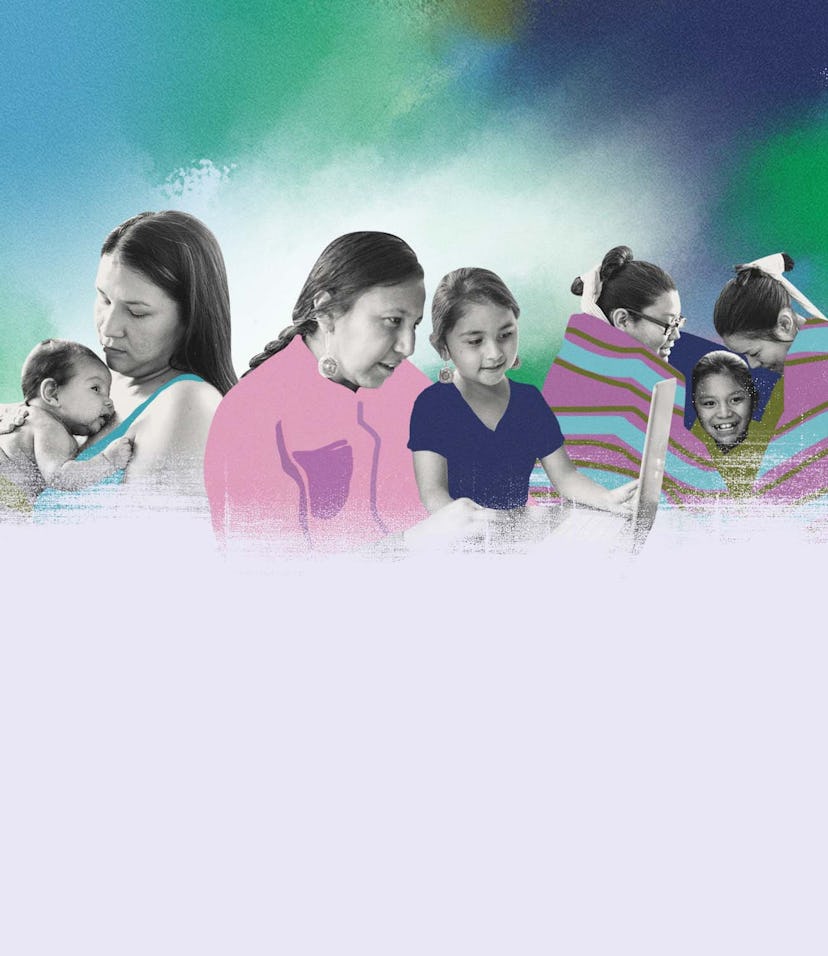
Indigenous parents are building the futures of our nations by raising children, passing along our traditions, and resisting colonialism.

Indigenous parents are building the futures of our nations by raising children, passing along our traditions, and resisting colonialism.
How often have you come across a story about Indigenous parenting in the media? It’s a question I asked myself while putting together the stories collected here. While Indigenous people make up around 2% of the American population — and 5% in Canada, where I am from — our voices are still too rarely heard. When Indigenous parents do appear, the stories about us tend to be tragic.
There are reasons for that: Indigenous parents face particular challenges. Our maternal mortality rate is twice as high as that of non-Indigenous parents; our children are far more likely to be taken by the foster care system. Many Indigenous people are survivors of residential schools and Indian boarding schools, and of subsequent initiatives to scoop Indigenous kids from their communities and adopt them out to white families.
It’s important to talk about these injustices. But it’s equally important to talk about Indigenous parenting as a joyful and hopeful practice. There is no more profound act of resistance than nurturing the next generation, and believing that their future can be beautiful. When I held my daughter for the first time, I felt the connection between her body and mine, but also our connection to all the ancestors who had come before us, who had lived and loved and survived so that we could be here together.
— Michelle Cyca, Guest Editor
Salmon Harvesting With My Son Connects Us With The Land And Our Ancestors
Our connection is fortified every time my son and I bring the fish from the water to our table.
I Carry The Trauma Of Residential Schools, But I Want My Children To Be Free
We love hard, we bake, we sing, we run, we laugh, we cry, and we celebrate who we are every single day.
The Indian Child Welfare Act Saved A Generation Of Children. The Supreme Court Is Poised To Gut It.
Every Native child deserves the deep sense of safety that comes with being cared for in a home that shares their culture.